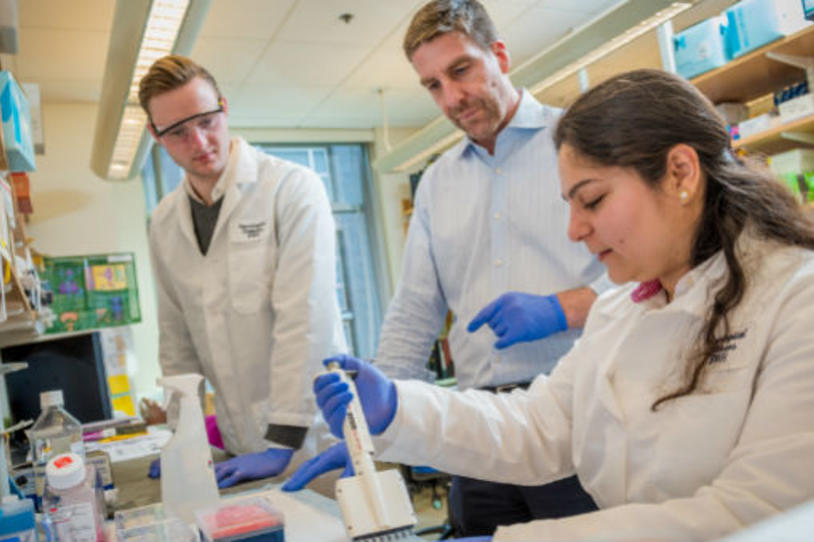
What we know: The protein alpha-synuclein clumps together in the brain cells of people with Parkinson’s.
What we believe: Those clumps lead to cell degeneration that causes the symptoms of Parkinson’s. If we can prevent or get rid of those clumps, we can stop cell degeneration and disease progression. And we may be able to measure alpha-synuclein levels to monitor Parkinson’s and to test therapies against those clumps.
What we do not know:
- What kind of alpha-synuclein leads to the clumps?
- What tests are best to measure alpha-synuclein levels?
- Could we have different tests to measure the different kinds of alpha-synuclein?
These are some of the fundamental questions that slow and limit drug development against our most promising target for a disease-modifying therapy, and we’re looking for answers.
Earlier this year The Michael J. Fox Foundation launched two programs investigating these unknowns. In the latest iterations of our Linked Efforts to Accelerate Parkinson’s Solutions (LEAPS) program, teams are studying the species of alpha-synuclein and experiments (called assays) to measure this protein.
Collaboration Speeds Progress
LEAPS coordinates scientists from academic university laboratories and clinics and from pharmaceutical and biotech companies toward a common goal. They share resources and results. They strategize together. They check each other’s work. Such collaboration moves us all forward faster.
“Competition is not a bad thing in research. When you’re all working toward the same goal, you’re motivated to take action,” said Kuldip Dave, PhD, who directs the MJFF alpha-synuclein portfolio. “LEAPS asks for cooperation, but there is healthy competition, too. The teams are working together, but all want to be the one that answers those big questions.”
Naming the Toxic Species Helps Specify Treatments
Three alpha-synuclein Species LEAPS teams are examining different types of the protein to determine which play a role in disease. One group led by a research team in Germany is looking at alpha-synuclein in spinal fluid. Two others (one led by a Harvard scientist and the other by a team from Sweden) are investigating the protein in brain tissue from autopsies. They’re using separate methods but the tissues from the same donors, which enables them to validate the other's work.
Proteins come in varied forms. Standing alone they are called monomers. They may bind together to form oligomers. Different chemical processes, such as phosphorylation, can alter the protein’s function. Researchers in the Species LEAPS teams are investigating these forms (i.e., monomers, oligomers and phosphorylated alpha-synuclein, among others) to learn which are involved in those protein clumps that may play a role in Parkinson’s disease.
Why is this important? The more we understand what we’re targeting, the more refined and specific our drugs can be and the more likely they’ll stop disease.
Finding the Best Tests Lends Reliable Results
The Assays LEAPS teams are comparing available tests that measure total alpha-synuclein (all those monomers and oligomers) to standardize their use and validate their abilities. This will encourage replication and confidence in results. Confident, replicable results are the basis of informed decision-making and next steps toward drug development.
In a show of true coordination, the Species LEAPS teams and the Assay LEAPS teams are working together, too. Some scientists are on both teams, working to validate existing assays and create new tests to measure different species of alpha-synuclein.
These programs are the latest in a string of MJFF efforts around this protein, our most promising target for a therapy to slow or stop Parkinson’s disease. Read more about how scientists are developing drugs against alpha-synuclein.
